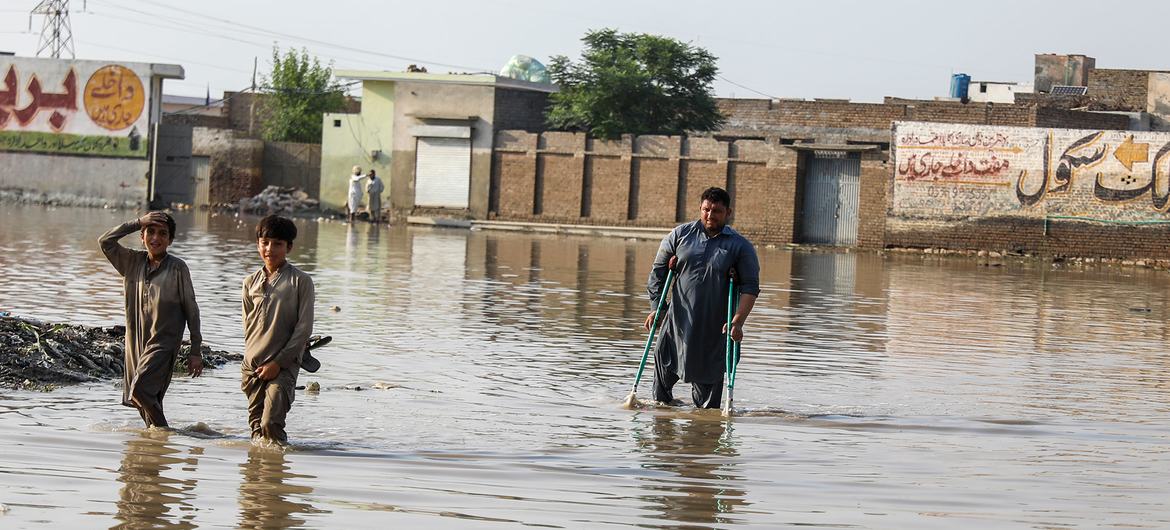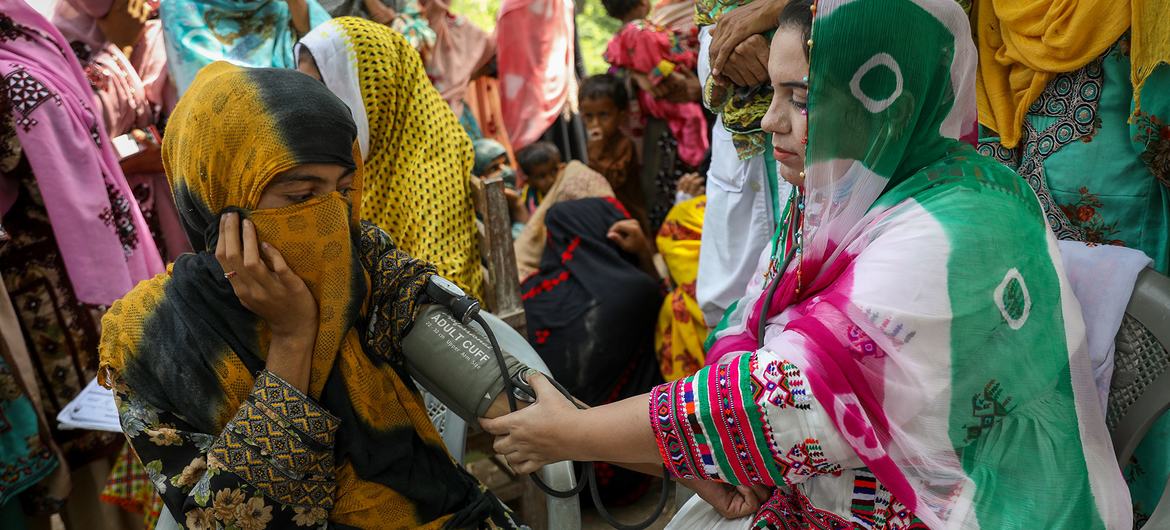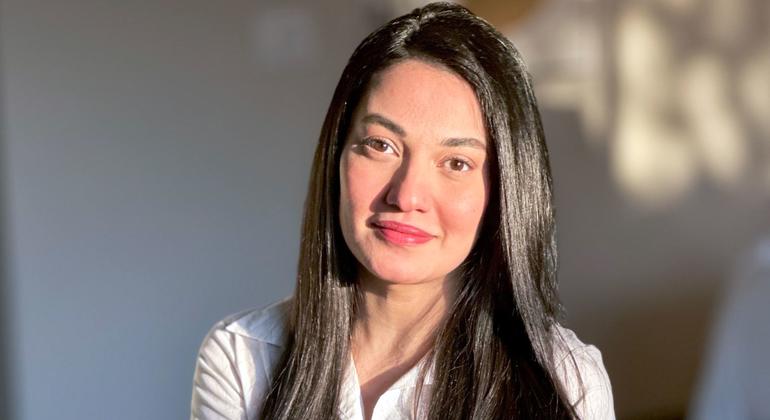When she was 21, Ms. Mazari was badly injured in a car crash which left her paralysed from the waist down. Despite facing immense challenges, she went on to become a prominent artist – her work has been exhibited in numerous prestigious galleries worldwide – a global motivational speaker, humanitarian, disability rights advocate, Pakistan’s first wheelchair bound female TV host, model and goodwill ambassador to UN Women Pakistan.
In an interview with Hareem Ahmed from UN News, Ms. Mazari shared her extraordinary journey of resilience and determination, her refusal to let her disability define her and her vision of a truly inclusive society.
Muniba Mazari: I’ve learned that, if you have the courage to face challenges head on, and if you are persistent and consistently trying to make a difference for yourself and for the people around you, barriers turn into bridges, and adversities turn into opportunities.
My appointment as an SDG advocate is a huge honour because, as a woman who has been using a wheelchair for the last 17 years, I know exactly how it feels to be discriminated against, to be underestimated, to be questioned, and then later be told you’re not good enough.
I’ve realised that if you have the passion to do things, people do open doors for you and they accept you with your grit and your passion. I’ve always done this and I will continue to be the voice for those who are left behind, not because they don’t have a voice, but because they don’t have the right platform to say what they have to say.
People with disabilities around the world face these problems and biases. They’re often left behind. They’re often left unseen and unheard, be it in classrooms, in workplaces, in leadership roles, and sadly, even in homes. As an SDG advocate, it’s my responsibility to represent them.
UN News: You have said that inclusion is a basic human right, not charity. What does a truly inclusive society look like to you and what barriers still need to fall?
Muniba Mazari: A lot of people think that inclusion means sympathy for people who are differently abled. We need to understand that an inclusive society has to have an inclusive mindset which is free of biases, labels and judgments. An inclusive society is impossible if we judge people for how they look. For me inclusion is about accepting people for who they are and what they believe in and respecting them and ensuring that, no one feels left behind.
Ideally an inclusive society would be one in which people are not labelled, just because they are different and unique, and a place where everybody feels seen, and heard, and welcomed. I hope maybe one day we’ll achieve this dream.
UN News: You have emphasised the importance of male allies in the fight for gender equality. What kind of support do you believe men can offer?
Muniba Mazari Men cannot succeed without women, and women cannot succeed without men. We cannot fight each other. We have to fight for each other and work together as a team.
My son knows that his mother doesn’t cook, but she works all day long and she’s passionate about her work, which has helped a lot of people along the way. If we really want to see the difference we have to raise our children in an inclusive environment.
When we talk about giving rights to women, it’s as if we are asking men to give their rights to us so that we can thrive. It’s not the case. We are not taking away rights from men and giving them to women. The problem is that men don’t have to ask for their basic rights. We just want men to stand with us, unlearn a lot of things that they have been taught and relearn and understand that men and women have to work together to grow and to excel.

Young boys and a man using crutches pass through the flooded streets of Nowshera Kalan, one of the worst affected area in Khyber Pakhtunkhwa province, Pakistan.
UN News: How do you use art and storytelling as a tool for social change?
Muniba Mazari: Creative expression is so important, especially when there’s so much sadness and darkness and hurt all around. Art has the power to heal and to transform people, and this is the best way to connect with people on a deeper human level.
In my personal journey, art has been my saviour, a safe space where I can just be myself and express what I’m going through. We need more artists in the world because we need more healing.
UN News: What are the biggest challenges to achieving gender equality in Pakistan today and how can we overcome them?
Muniba Mazari: We need to raise our children equally. The biases are so deep rooted that we don’t even look at them as a bias. Cooking and cleaning are basic life skills, not gender roles, but if a man is doing laundry, people laugh at him. My brother does it in my home, in my household. He cooks when he wants to. I don’t cook because I don’t feel like it. For my son, it’s totally normal.
We have done an incredible job of raising strong girls, and we know how to find a way and how to take the lead. But what about the boys who don’t know what to do when they see a woman thriving? They get intimidated, they feel threatened.
I think it’s important for us to raise strong men. My definition of a strong man is very simple: It’s a man who does not feel intimidated when he sees a girl or a woman thriving and excelling in her career.

© UNICEF/UN0701839/Zaidi
A health worker conducts blood pressure tests in rural India.
UN News: What are the most urgent gaps you see in disability rights and accessibility?
Muniba Mazari: A lack of acceptability and a lack of accessibility.
I remember when I started my journey as an artist, as a TV anchor, I was told ‘you’re a woman in a wheelchair in Pakistan and things will be difficult. You will be the first one to do all this.’ And I remember saying, I might be the first, but I won’t be the last, because what I’m doing right now is creating a path for a lot of people who will come after me.
I’ve seen mindsets change; it’s been a long road and there’s still a long way to go, but let’s start with accepting people for who they are and giving them the right to go out and live life to the fullest.

